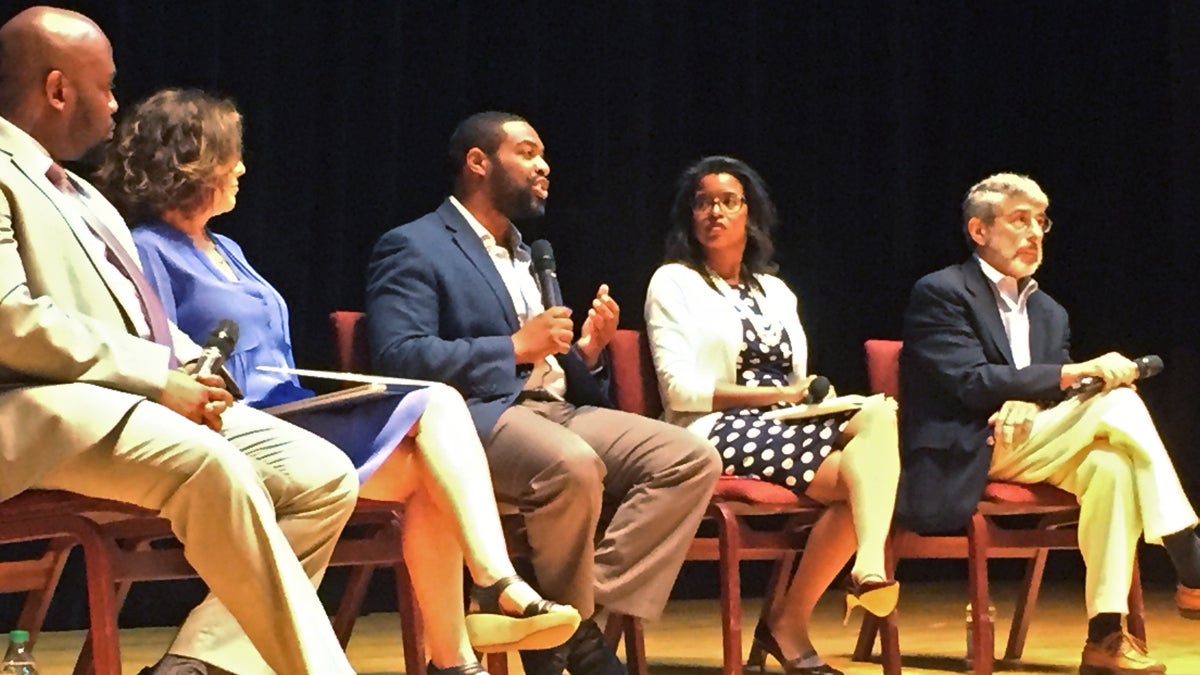Philly rise from deep poverty depends on broad political, societal changes

City and national leaders discuss how federal policy can affect poverty during forum at Temple University. (Aaron Moselle/WHYY)
A panel of anti-poverty advocates discussed Philadelphia’s new beverage tax and presidential influence during a Tuesday morning event on Temple University’s campus.
Proceeds from the 1.5 cent-per-ounce tax on sweetened drinks will help fund initiatives aimed at helping the city’s poorest, including establishment of universal pre-K and upgrades at parks and recreation centers.
Donna Cooper, executive director of Public Citizens for Children and Youth, pushed for the tax, but said it’s not a panacea.
“Unless we’re going to increase the minimum wage, get to standardized work schedules, get to paid leave, get to universal access to affordable health care and child care, it’s going to be really hard for parents to get out of poverty,” said Cooper. “And as long as parents can’t get out of poverty, children can’t get out of poverty.”
Farah Jimenez, who heads the Education Fund, drummed up a “comedic image” to lament the beverage tax and others like it.
“An older woman, who is sitting in front of a slot machine, with a rum and coke smoking a cigarette and pulling the slot machine. That’s how we fund education in Philadelphia — through all of those sin taxes,” said Jimenez.
Philadelphia is considered the biggest poor city in the country because so many people live in deep poverty. That’s defined as earning less than half of the federal poverty rate — roughly $10,000 a year for a mother with two kids.
David Elesh, emeritus associate professor of sociology at Temple University, said gerrymandering and congressional gridlock would make it hard for any president to move the needle on that math.
“You’ve got a group of people, particularly in the House, who aren’t responsive to a national agenda, only a local agenda. And if the government is doing very little, that is entirely consistent with their point of view, ” said Elesh.
Cooper, with Public Citizens for Children and Youth disagreed, saying federal policies have made systemic changes and can again.
Panelists agreed on one thing: Philly’s poverty problems are not going anywhere anytime soon.
The event was sponsored by Spotlight on Poverty and Opportunity, an nonpartisan effort launched to coincide with the Republican and Democratic National conventions.
WHYY is your source for fact-based, in-depth journalism and information. As a nonprofit organization, we rely on financial support from readers like you. Please give today.


